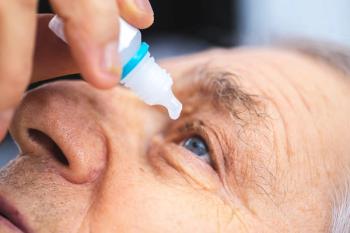
MBKU’s Southern California College of Optometry rings in 120 years
The optometry school, founded in 1904, was the first of its kind in California.
Marshall B Ketchum University’s (MBKU) Southern California College of Optometry (SCCO) has made it well past the century benchmark with the celebration of its 120th anniversary. Originally founded in 1904, SCCO was the first optometry school in California, according to a news release.
"SCCO's 120-year journey signifies more than just longevity; it represents a commitment to best-in-class optometric education,” said Julie A Schornack, OD, MEd, president at MBKU. “This milestone is an opportunity to recognize the collective efforts of the leaders, faculty, students and alumni who have shaped not only our institutional legacy but the long-term success of thousands of health care professionals."
SCCO offers OD and MS in Vision Science degrees, with its OD program accredited by the Accreditation Council on Optometric Education of the American Optometric Association, which allows graduates to practice in all 50 states. Cohort sizes remain small at about 100 students. Additionally, SCCO provides opportunities to be involved in 15 optometry-related clubs and dedicates faculty mentors for each student.1
Other opportunities provided by SCCO includes residency programs that are available across the country, which were initiated in 1977. These offer a year of post-graduate clinical opportunities that allow students to expand upon their clinical expertise and begin developing a specialization. The program comprises of nearly 50 positions across the country, with specialties including cornea and contact lenses, low vision rehabilitation, ocular disease, primary care, neuro-optometry, and pediatric optometry and vision therapy. These residencies are often run within hospitals, VA facilities, outpatient clinics, or the clinical facilities of participating colleges and schools of optometry.2
"Our focus on interprofessional collaboration is something that truly sets SCCO apart," added Susan Cotter, OD, MS, FAAO, president of the American Academy of Optometry and faculty member at SCCO. "By curating a more holistic approach to optometric education, we empower our students to excel by equipping them with the diverse skillset needed to adapt in today’s rapidly evolving medical landscape."
Ketchum Health’s University Eye Centers in Anaheim Hills and Los Angeles, California also provide opportunities for SCCO students to gain in-the-field exposure to a variety of specialties, including primary care, cornea/contact lenses, pediatric vision care, ocular disease treatment, and vision therapy, among others.1 Both locations also provide prosthetic eye services and have myopia clinics.3 Additionally, students participate in real-world simulation and take part in collaborative projects and cases studies during their time at SCCO.
References:
Southern California College of Optometry celebrates 120 years of educational and clinical excellence. Marshall B Ketchum University. News release. Published April 3, 2024. Accessed April 9, 2024.
Residency Programs. Marshall B Ketchum University. Updated 2024. Accessed April 9, 2024.
https://www.ketchum.edu/optometry/academics/residency-programs University Eye Care Services. Ketchum Health. Updated 2024. Accessed April 9, 2024.
https://ketchumhealth.org/anaheim
Newsletter
Want more insights like this? Subscribe to Optometry Times and get clinical pearls and practice tips delivered straight to your inbox.








































